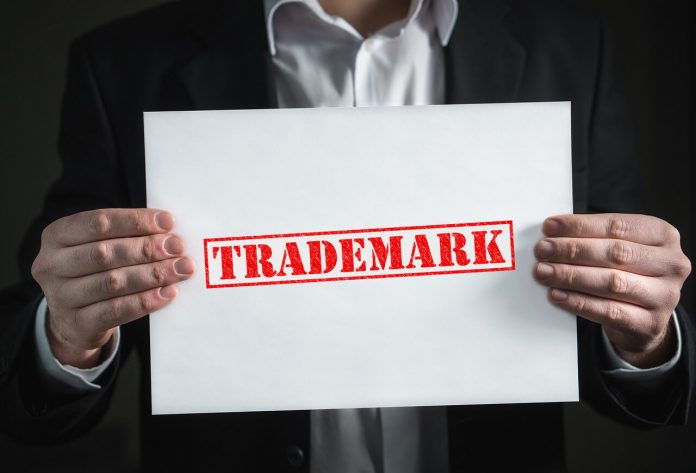This article is written by Priyam Amin pursuing Diploma in Intellectual Property, Media, and Entertainment Laws from LawSikho.
Table of Contents
Introduction
Have you ever wondered how heritage hotels are registered under the Trademark Act,1999? These striking hotels are the properties that initially were the forts, palaces, and chateau of the erstwhile royal families. They were built by the royals in the form of their residence. These homes, from hundreds of years ago, have been known for their impeccable royal hospitality. After independence, the maintenance of these enormous properties became difficult as a result the idea of heritage hotels arose.
Here in this article, I’ll be talking about how to apply for the trademark of the heritage hotels, documents needed to register a trademark, and why one should register heritage hotels and their importance so keep reading further.
What is a trademark?
Substantially a trademark is a commercial right of the owner which can be obtained after issuing the trademark certificate. The “mark” includes a device, brand, heading, label, ticket name, signature, word, etc. It is a type of Intellectual Property having numerous rights. It is also capable of being represented graphically which is capable of distinguishing the goods and services of one person from those of others.
Hence, the main object of the Trademark Act, 1999 is to provide for the registration of trademarks, better protection of trademarks, and prevention of the use of fraudulent marks on goods and services. In fact, the Supreme Court in Laxmikant V. Patel v/s Chetanbhai Shah AIR 2002 S.C 275 explained the objective of trademark law as “The law does not permit anyone to carry on his business in such a way as would persuade the customers or clients in believing that the goods or services belonging to someone else are his or are associated therewith. The reasons are two, firstly, honesty and play fair are, ought to be, the basic policies in the world of business. Secondly, when a person adopts or intends to adopt a name in connection with his business or services which already belong to someone else, it results in confusion and has a probability of diverting the customers and clients of someone else to himself and thereby resulting in injury”.
Which governing body controls the registration process?
A trademark in India is governed by the Controller General of Patents Designs and Trademarks, Ministry of Commerce and Industry, Government of India. Trademarks are registered under the Trademark Act, 1999. The registered trademarks are the intellectual property of the proprietor, and they are used to protect the rights of the company’s investment in the brand or symbol.
Do trademark rights emerge through years of use or registration?
An individual may acquire his rights in a trademark in any two ways such as either by registration or by having a predominant right on goods or services which triumph the registered owner’s rights.
Despite Section 28 talks about the exclusive right on the registered proprietor from preventing others from using an identical or deceptively similar mark, Section 34 on the other hand screams an exception wherein it gives rights to a user when its user is prior to the user of the proprietor and prior to the date of registration of the proprietor, whichever is earlier.
In the judgement of M/s. R.J. Components and Shafts v/s. M/s. Deepak Industries Limited, the Delhi High Court recognized the “Prior use of a Mark”. In this case the court reiterated the law that the prior user of a trademark will override the subsequent user even if the subsequent user has registered the trademark.
Prerequisites of a trademark
An individual shall always consider the following points while registering for a Trademark under the Trademark Act 1999:
- The mark should be an invented word.
- The mark should be distinctive in nature from other trademarks.
- The mark should be capable of being represented graphically.
- The mark should not belong to the class of marks prohibited for registration.
Any individual who aims to claim the rights in a trademark can use the symbol TM after the trademark. Once the individual gets its trademark registered then the individual can use the symbol ® after the trademark so as to educate the potential infringers that the specific mark/word/device/logo is being claimed as a trademark.
Why should heritage hotels register for trademark?
- Registration of a trademark provides protection to the proprietor’s company, reputation, and ideas as well as protection for the use of fraudulent marks.
- Trademarking the name of the heritage hotels makes a novel and distinctive brand, which will improve client mindfulness and pull in new benefactors.
- When a business is thinking about growing their brand in different locations and franchising it helps to increase their profits.
- Registration can be used as a prima facie.
- Building a picture for your business that helps you to showcase your items and administrations to clients.
- Improving a company’s market value by income generation avenues that can involve sales, commercialization, and licensing.
- Advertising the goods and services to the public/consumers at large.
- Assignable rights which are not available in case of unregistered trademarks.
- Expanding your contending revenue in the worldwide market and boosting the market worth of your business.
Who can apply for the trademark?
A trademark application can be made by any individual who owns:
- A private firm,
- Companies- LLP, OPC, Private limited, Public, Partnership, etc.,
- NGO’s.
An individual can also apply for the trademark with the help of an attorney.
Documents needed for trademark registration
As seen above, if an individual is applying through an attorney then it is mandatory to issue an authorization letter that is appropriately signed by the individual as it would enable the attorney to file for the trademark registration.
While applying for the trademark registration, the documents required are as follows:
- Proof applicant: The person who is approved by the trademark owner requires to produce identity proof such as a Voter’s ID, Driving License, Aadhar Card, Passport or Ration Cards.
- Brand name and logo: The logo should be in black and white (optional). An applicant who wants to register only for the tagline or the word then there is a need to submit the logo. The applicant should make sure that the brand name should be distinctive and an invented word.
- PAN Card and address proof of applicant.
- User affidavit.
- Signed form TM-48- It is an authorisation from the applicant to an Attorney for filing of the trademark application.
- Proof of trademark use.
- Incorporation Certificate or Partnership Deed.
How to register trademarks for hotels under class 43?
Trademarks are registered under different classes and each class represents different kinds of goods and services which are accepted globally. The trademark class for restaurants and hotels is class 43, which includes various services related to this class.
Class 43 Trademark India means a class of trademark which represents services for providing food, drink, and temporary accommodation and includes, services provided by those who prepare food and drink for consumption, provide bed and board in hotels or other establishments for temporary accommodation, catering services for events and functions, temporary office, renting of furniture, reservation services for travellers accommodation through travel agencies and brokers and boarding of animals.
Although it is not mandatory for hotels to register under class 43 of the trademark if the trademark is registered it will be an added advantage for the business to grow their revenue as well as protect them from their competitors and will increase the customer base.
Procedure for registration of a trademark
The registration procedure in India is based on the ‘first come first’ process. The office of the Controller General of Patents, Trade Mark, Industrial Design, and Geographical Indication is the appropriate office for filing a trademark application in India. The steps that are involved in the registration process in India are as follows.
1. Select a trademark agent in India
In India, the trademark law allows the proprietor to file a trademark application only if they have a place of business in India. The holder of the right will be required to file through a trademark agent/attorney.
2. Public search
The trademark agent will determine if the brand name is eligible for registration and also conduct a search to determine if there is any similar mark that already exists on the Register of Trade Marks as maintained in the office of the Controller General.
3. Filing of the application form
The trademark agent can complete and sign the application form, provided that the rights holder has issued a signed Power of Attorney appointing them as the trademark agent. The agent then will fill in the required information.
4. Review of the trademark
After the application has been filed, the trademark officer reviews the application and thereafter allots an application number to the applications. If the trademark is registered then the application number becomes the registration number.
The government can also raise objections if the brand name is similar to any other trademark in the same class, or it deems to hurt the sentiment of any religion or public at large.
The applicant must respond to the objections that have been raised in a time bound manner. If there is no objection, the trademark registration will publish an advertisement in the trademark journal, if no objection is filed by any party within a period of 4 months then the trademark should be registered within 6 months. If the application is rejected, the Applicant can approach the Intellectual Property Appellate Board to appeal the order of the Registrar of trademarks.
5. Registration
If the trademark is not opposed by the third party, it will proceed and the trademark registrar will accordingly issue a registration certificate.
It is important to note that any individual who wants to apply for the registration of a trademark can do so by the process of e-filing. The procedure for registration and renewal can easily be done by e-filing of applications. The trademark application can be filed electronically through its website www.ipindia.nic.in.
Term trademark registration
The trademark protection in India is subject to renewal after every 10 years. The application for renewal can be filed six months before the expiry of the validity period of the trademark.
Renewal of the trademark
The trademark must be renewed before its expiry.
- The Renewal of the application shall be done in TM-12.
- The registrar on the application made by the registered proprietor shall be in a prescribed manner and within the prescribed time and subject to payment of the prescribed fee shall renew the registration of the trademark.
- Before the end of the expiration, the registrar shall send notice to the registered proprietor for the renewal of the registered trademark.
- Where the trademark has been removed from the registrar for non-payment of the prescribed fee, the Registrar shall after 6 months and within 1 year from the expiration of the last registration of the trademark, on receipt of an application in the prescribed form and on payment of the prescribed fee, if satisfied that it is just so to do, restore the trademark to the register and renew the registration of the trademark either generally or subject to such condition or limitations as he thinks fit to impose, for a period of 10 years from the expiration of the last registration.
Why is the renewal of a trademark important?
The renewal for the trademark shall be filed before the expiration of the 10 years to retain the protection of the trademark without any chances of litigation.
1. Protection for the perky litigation
It is probably going to have perpetual trademark protection without any risk of litigation. Protection of trademark rights makes it difficult for others to maintain the rights over it other than the proprietor.
2. Increase of the proprietorship
It gives the proprietor exclusive rights for continues 10 years after every renewal therefore, it gives lasting protection to the goodwill and the ideas produced by the company.
3. Monetary revenues
The trademark owner has the right to assign or license the trademark to someone in return for consideration hence, one can acquire a benefit from a registered trademark as well.
Students of Lawsikho courses regularly produce writing assignments and work on practical exercises as a part of their coursework and develop themselves in real-life practical skills.
LawSikho has created a telegram group for exchanging legal knowledge, referrals, and various opportunities. You can click on this link and join:
 Serato DJ Crack 2025Serato DJ PRO Crack
Serato DJ Crack 2025Serato DJ PRO Crack











 Allow notifications
Allow notifications


